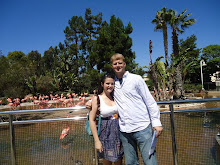
Susan Campbell-Bartoletti has thoughtfully crafted the tale of southern mistakes as well as misplaced anger. She uses media from the time period, including the Emancipation Proclamation, newspaper and political cartoons, and interviews written in dialect with former slaves. This inclusion of media adds to a narrative that portrays the southern state of mind and reasoning in the deserved negative light.
Tales of fear of former slaves and how the Klan made them suffer, by killing or ruining any possible chance at prosperity, will create a sense of anger and empathy in any reader. Mark Tinker sums up why we should be and why others should have been sympathetic by saying "I have no heart to work all day and then think at night I will be killed" (page 83). The Klan had more tangible power through politics and even more intangible power through the fear they invoked in both their appearance and the fact it was difficult to determine who or what they would target next.
Though I found Bartoletti's narrative to be interesting, well-written, and thoughtfully crafted, I take issue with her inclusion of "A Note to the Reader." I question the need to include notes like these in any kind of book. To me, as someone who reads frequently, including this note shows some sort of failure in writing. In the note Bartoletti explains the regret she fees for including offensive political cartoons and interviews written in dialect. Basically, I found the note unecessary. Perhaps it was included to set the tone for the book. However, I feel it showed a certain lack of faith Bartoletti has in her own writing. The inclusion of such cartoons and interviews were a reflection of the time period and the book would not be considered notable without such media.
Bartoletti is very accurate in her portrayal of the Klan. Some writers have been rightfully harsh on the clan. However, Bartoletti manages to be rightfully harsh and consider the groups origins, from angry white former Confederate soldiers who thought they were not being treated properly, at the same time. Her book is organized chronologically and includes chapters that focus on how the Klan disturbed the education of former slaves as well as their religious practices.
She also provides a Civil Rights Time Line that begins with the Emancipation Proclamation and follows to the election of Barack Obama. Also an important part of any work of non-fiction are the sections labeled "Quote Attributions," "Bibliography and Source Notes," "Acknowledgements," and "Index." The style of the book is also enticing. Though the cartoons and pictures are not in color, they appear with captions on nearly every page. This keeps young readers actively engaged in the learning process of reading a non-fiction book.
Susan Campbell- Bartoletti has made a name for herself by creating notable non-fiction books for young adults. Some of those books include Hitler Youth: Growing Up in Hitler's Shadow, Black Potatoes: The Story of the Great Irish Famine, Kids on Strike!, and Growing up in Coal Country.
This book, They Called Themselves the K.K.K.: The Birth of an American Terrorist Group, is a finalist for the YALSA Excellence in Non-Fiction Award. It is also an ALA notable title.
Kirkus says that "Documentation is superb, and even the source notes are fascinating." School Library Journal says "This richly documented, historically contextualized account traces the origin and evolution of the Ku Klux Klan."
I learned a great deal from reading this book. However, I wonder what place a book on such a mature topic will find in many school libraries. I think that teachers who are exploring contemporary terrorist groups can find good information in this text that will be illuminating to students when they compare the Klan to modern terrorist groups. Sharing this book out loud would require a lot of front loading or previous learning because the topic discussed does require a certain level of maturity to understand. However, the much of the media included here would be useful to explain attitudes during reconstruction.
From my reading and exploration, I understand why this book has gotten so much praise. However, as a southern person living in the north, I was ashamed to pull it out and read it in front of other people. The image on the front cover, though attention grabbing and thought provoking, conjures strong reactions in so many people. I imagine that is why it was selected.
References:
Campbell-Bartoletti, Susan. They Called Themselves the K.K.K.: The Birth of an American Terrorist Group. New York: Houghton Mifflin, 2010. ISBN: 978-06-618-44033-7




No comments:
Post a Comment